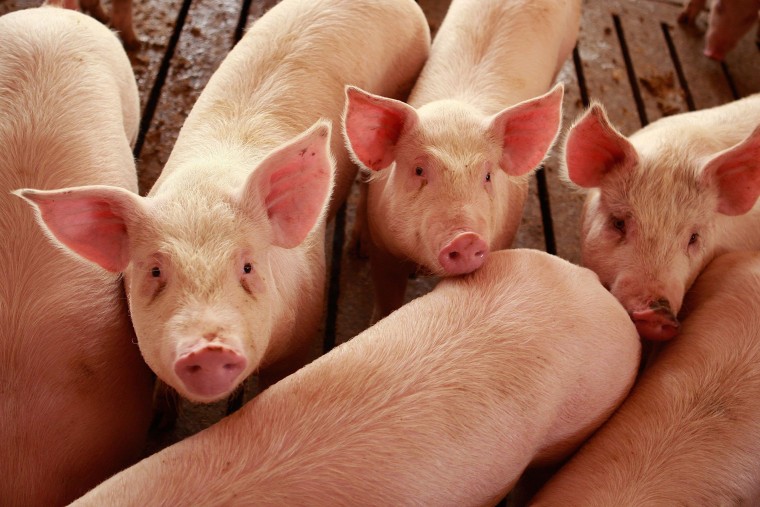The Food and Drug Administration proposed banning an antibiotic used to fatten up pigs for slaughter, saying the company that makes it hasn’t proved it cannot cause cancer in people.
The antibiotic, carbadox, is one of many used in farm animals. The federal government and consumer groups want farmers to stop using them to fatten animals because their heavy use is helping spread antibiotic-resistant superbugs. But that’s not what worried FDA about carbadox.
“Continued approval of carbadox could expose consumers to substances of carcinogenic concern,” the FDA said in a statement.

Several studies have shown the antibiotic can cause cancer in rats, and there are worries it could stick around in pork products and affect people.
“The potential cancer risks are based on an assumed lifetime of consuming pork containing carbadox residues, and short-term changes in diet are unlikely to affect anyone's lifetime risk. However, removal of the product from the market will reduce the lifetime risk to consumers, which is why (FDA’s Center for Veterinary Medicine) is taking this action,” the FDA said.
Carbadox is already limited in Canada, Australia and the European Union.
“The agency recognizes that pork is a common protein in American diets. Based on the FDA’s findings with respect to carbadox residues in pork products, the agency offers this advice to consumers: Pork is a good source of protein; however, protein can also be found in other meat, poultry, seafood, beans and peas, eggs, processed soy products, nuts and seeds. Select a variety of protein foods to improve nutrient intake and health benefits.”
The FDA says it does not know which pork products come from pigs treated with carbadox.
“Producers are not required to report to the FDA which drugs they use, and drug sponsors are only required to report sales data, which does not reflect actual use,” it said.
The drug is not used to treat people in the U.S.
Antibiotics were first used to treat animals for disease, but farmers quickly learned that they make animals grow faster, too. It might be because they destroy certain bacteria in the digestive system that help metabolize food. Studies are starting to suggest that when people use antibiotics, it can also change the makeup of this so-called microbiome and affect weight gain and growth.
The fears about superbugs have also been growing. The more bacteria are exposed to an antibiotic, the more likely they are to mutate in a way that helps them evade the effects of the drugs. Widespread use in farm animals can help these bacteria evolve and then spread throughout the environment – affecting not just people who eat the meat from the animals, but everyone.
The FDA’s persuaded at least two dozen companies to phase out their use in animals raised for meat.
The U.S. Centers for Disease Control and Prevention reports that more than two million people are infected by drug-resistant germs each year, and 23,000 die of their infections.
Bills in Congress would limit farm use of antibiotics, but they have yet to be enacted.
